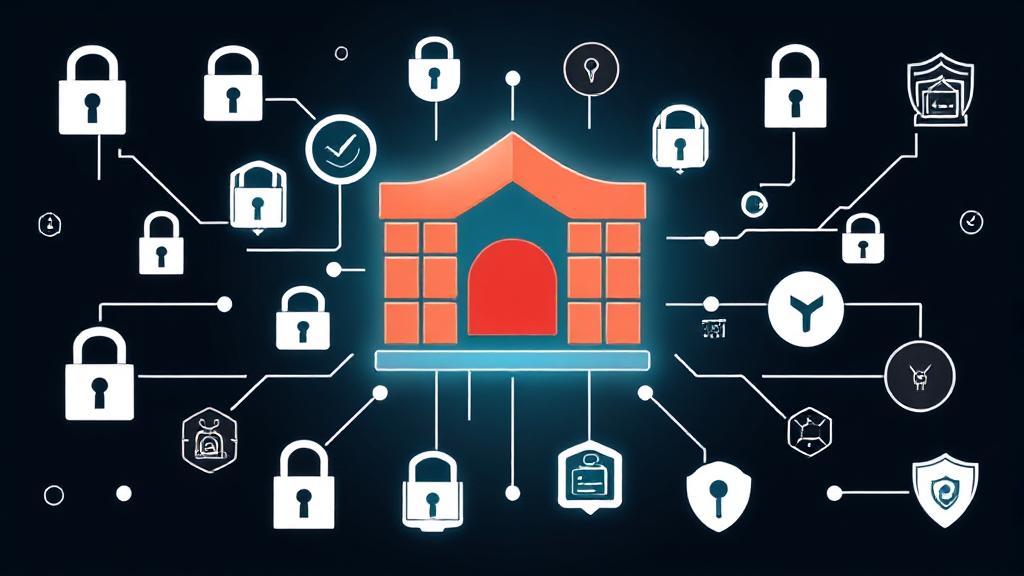What is a Firewall?
A firewall is a network security device or software that monitors and controls incoming and outgoing network traffic based on predetermined security rules. Think of it as a security guard that checks IDs before allowing people to enter a building. It acts as a barrier between a trusted internal network and untrusted external networks, such as the internet.
How Firewalls Work
Firewalls operate by filtering traffic at various layers of the network. They examine data packets traveling through network connections, analyzing various attributes such as:
- Source and destination IP addresses
- Port numbers
- Protocol types
- Application-specific data
Based on configured rules, the firewall then decides whether to:
- Allow the traffic through
- Block the traffic
- Forward it to a different network destination
Types of Firewalls
1. Packet-Filtering Firewalls
These are the most basic type of firewalls. They inspect packets in isolation and make decisions based on the source and destination IP addresses, ports, and protocols. While they are fast and efficient, they do not inspect the payload of the packets, which can be a limitation.
2. Stateful Inspection Firewalls
Also known as dynamic packet filtering, these firewalls track the state of active connections and make filtering decisions based on context. They're more secure than packet filters but require more resources.
3. Application Layer/Proxy Firewalls
These firewalls act as intermediaries between end-users and the internet. They can understand and filter traffic based on specific applications and protocols, making them effective at blocking malicious content.
4. Next-Generation Firewalls (NGFW)
NGFWs combine traditional firewall capabilities with advanced features such as:
- Deep packet inspection
- Intrusion prevention
- Application awareness and control
- SSL/TLS inspection
- Machine learning capabilities
5. Cloud Firewalls
With the rise of cloud computing, cloud firewalls have become increasingly popular. These are hosted in the cloud and provide firewall protection as a service. They are scalable and can protect cloud-based infrastructure from cyber threats.
Importance in Cybersecurity
Firewalls provide essential protection against various cyber threats:
- Protection Against Unauthorized Access: Firewalls prevent unauthorized users from accessing private networks connected to the internet, safeguarding sensitive data.
- Traffic Monitoring and Control: By monitoring network traffic, firewalls can detect and block malicious activities.
- Policy Enforcement: Firewalls enforce security policies by allowing only legitimate traffic to pass through.
- Network Segmentation: Firewalls enable organizations to create security zones and implement zero-trust architectures.
Compliance Requirements
Many regulatory standards require firewalls:
"Organizations must implement and maintain a firewall configuration to protect cardholder data." - PCI DSS Requirement 1
Best Practices for Firewall Implementation
Rule Configuration
Regular Maintenance
To maintain effective firewall protection:
- Regularly update firewall software
- Review and audit rule sets
- Monitor firewall logs
- Test firewall effectiveness
- Document changes and configurations
Performance Considerations
| Factor | Impact |
|---|---|
| Rule Complexity | Higher complexity = Lower performance |
| Traffic Volume | Higher volume = More resources needed |
| Inspection Depth | Deeper inspection = More processing time |
Future of Firewalls
The evolution of firewall technology continues with:
- Cloud-native firewalls
- AI-powered threat detection
- Integration with zero-trust frameworks
- Enhanced automation capabilities
- Improved handling of encrypted traffic
For more information about implementing robust firewall protection, visit the NIST Cybersecurity Framework, Cisco, or Palo Alto Networks.
Remember that firewalls are just one component of a comprehensive security strategy. They should be combined with other security measures like antivirus software, intrusion detection systems, and regular security awareness training for optimal protection.
